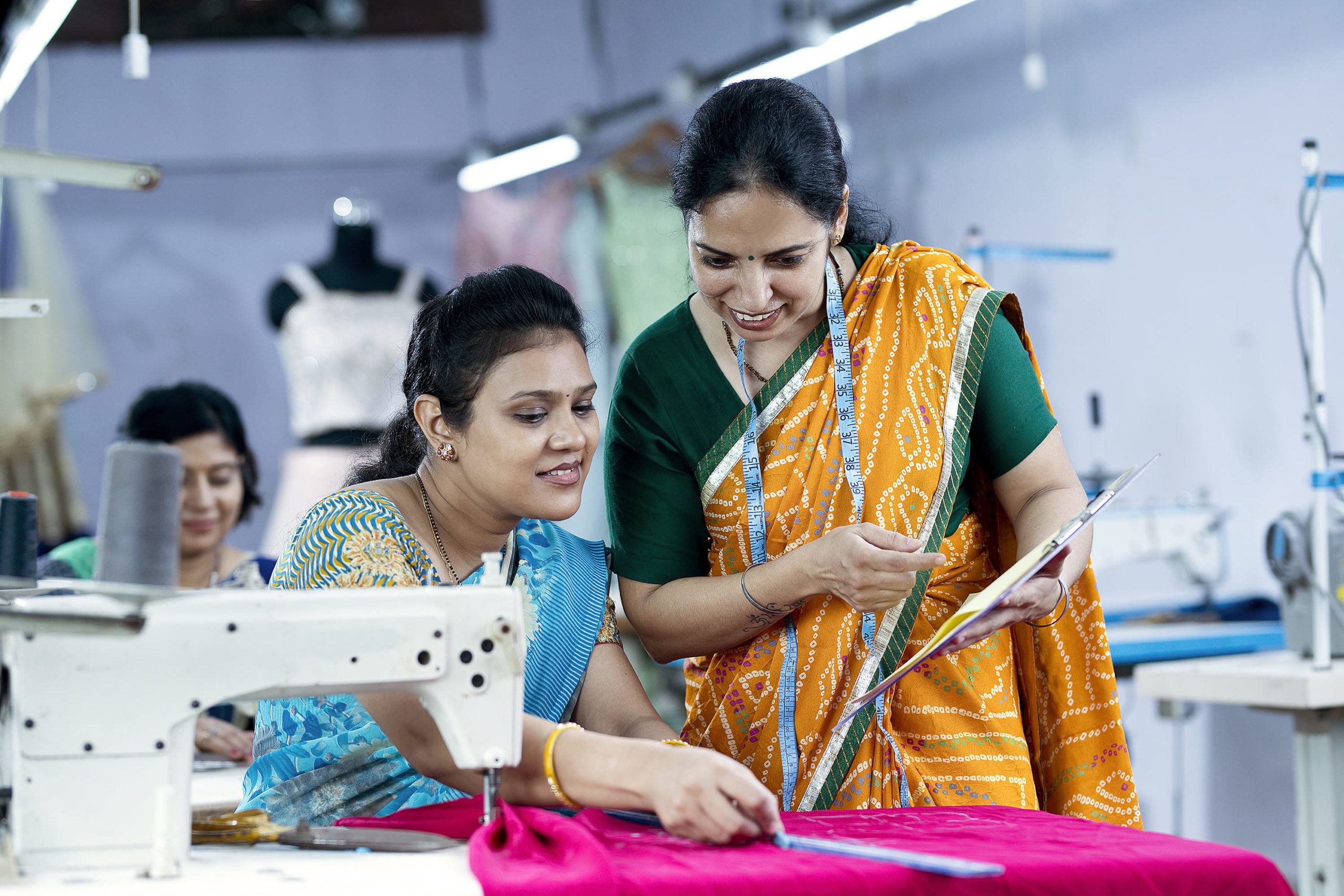Women’s participation in the labour market increases economic growth at both the national and firm level, yet women worldwide still face significant labour market challenges. Current research on women’s labour market experience in developing countries mainly focuses on short-term jobs. We propose shifting the focus from jobs to “careers,” i.e., occupations characterized by a long-term perspective that includes training, wage growth, and occupational advancement. Our research aims to identify the constraints women face in job-to-career transitions and evaluate interventions to promote their career advancement in Bangladesh, India, and Pakistan. We focus on the garment industry, one of the largest employers of women across South Asia. The PI‘s preliminary analysis of nearly 900 apparel factories and over 1 million apparel workers in Vietnam, Turkey, Pakistan, Myanmar, China, Indonesia, India, Cambodia, and Bangladesh shows that wage gaps are highest and female career advancement is lowest in Bangladesh, India, and Pakistan. Moreover, the Jobs of the World database has very limited recent coverage of women’s labour market outcomes in South Asia. As a result, there is a tremendous need for both original data collection (to identify, document, and quantify the constraints that women face in the labour-intensive manufacturing sector) and for rigorous evaluation of policy interventions designed to lift the constraints on women’s career advancement in South Asia.
Our two primary research questions are: 1) What are the most important demand-side and supply-side constraints on women‘s job-to-career transition in garment factories in Bangladesh, India, and Pakistan? And 2) Can interventions targeting either managerial decision-making (demand-side), or female workers‘ information, coping strategies and family support (supply side) promote women’s career advancement in South Asia?
Our contribution to the literature is threefold. First, we follow the arc of Goldin (2006), Fernandez (2013), Duflo (2012) and Bandiera et al. (2020) to help shift discourse from jobs to careers to support female empowerment in developing countries. While women globally face career constraints (Blau and Kahn, 2017; Tabassum and Nayak, 2021), constraints seem to be especially acute in developing countries (Jayachandran 2005, 2021; Heath and Jayachandran, 2016). Recent work highlights the importance of career advancement in Bangladesh (Woodruff et al. 2018; Macchiavello et al., 2020; Menzel and Woodruff, 2021; Ucka,t 2022) and casts gaps in India and Pakistan into sharp relief. We build on the promising results obtained in Bangladesh by leveraging existing data, conducting new surveys and implementing new interventions in Bangladesh, India, and Pakistan.
Second, few comprehensive survey-based studies document how different constraints vary across regions and how they affect career advancement. By focusing on Bangladesh, (Northern and Southern) India and Pakistan, three regions with similar gender norms but with remarkably different rates of female labour force participation in the garment sector, our study will generate insights on both the common and the unique challenges that women face in each context, and will help us identify opportunities for change and progress.
Third, by rigorously evaluating several key interventions we extend literature showing how policy interventions can improve women’s labour market outcomes (Arora et al. 2023) and support female empowerment (Bandiera et al. 2020, Baker et al. 2023). Our demand-side interventions will contribute to recent studies on the importance of increased wage transparency for gender equality in the labour market (e.g. see Baker et al. 2023). Our supply-side interventions will contribute to the growing literature on whether and how information and role models (see, e.g., Ahmed et al, 2022; Serra, 2022) and within-household communication and family “buy in” (Blau and Kahn, 2007; Dean et al, 2019; Eckstein and Lifshitz 2015) can help shift gender norms.
Our project will unfold in three distinct phases. In Phase 1, we will conduct a survey of managers and workers employed in factories in Bangladesh, India, and Pakistan. The resulting data will complement administrative data that our partner has already shared with the PI. In Phase 2, we will implement a comprehensive set of factory-level interventions targeting either factory managers or female workers and their families, through clustered randomized controlled trials in Bangladesh and India. Phase 3 will consist of the evaluation of the interventions, through the collection and analysis of administrative and survey data the year following the interventions.
